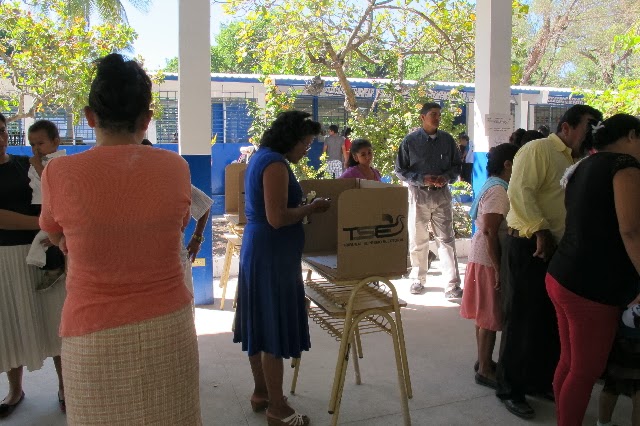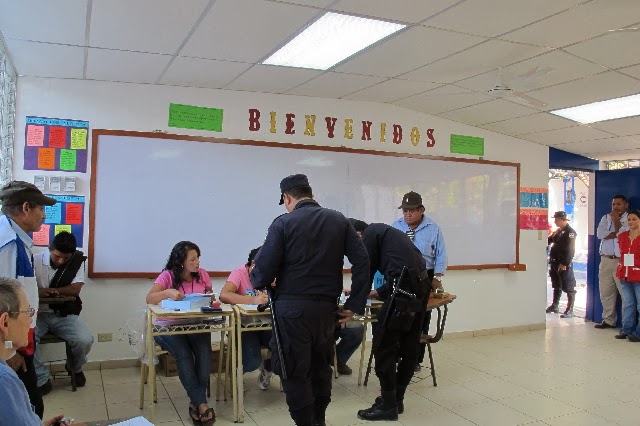This year 2014 the
CIS’s Network of Communities are making a very important effort on human
development. We have started The “Mercedes Arias” Solidarity and Social Transformation School for the
formation of community leaders. The
goal of this effort is to develop a group of leaders made up of 30 people (20
woman and 10 men) from the Community Network, Water Committees, and the Scholarship
Program. The school is designed so that
the workshops are reproduced by the leaders in their local organizations. It will be a multiplying team.
The school is set up
for seven months from January to July. The topics are as follows: power, leadership, community organization,
environmental contamination, access for woman to comprehensive health care,
conflict transformation and solidarity.
 All of these topics
are prepared with a methodology that allows us to take a step back and examine
how we are doing currently. It is done
in a way that each participant reflects on the topic from his/her reality. We are going to look deeper into our groups
in the communities. Our orientation is
that, as leaders, we should be actors and not spectators. Change should first come from us.
All of these topics
are prepared with a methodology that allows us to take a step back and examine
how we are doing currently. It is done
in a way that each participant reflects on the topic from his/her reality. We are going to look deeper into our groups
in the communities. Our orientation is
that, as leaders, we should be actors and not spectators. Change should first come from us.
The Methodology
We are working with a facilitator’s
guide that is based in popular education.
Some of the material comes from what we worked on last year with an
intern and other material is from Equipo Maíz.
We include techniques like role play, energizers, music, etc. We have participation
guidelines for the workshops. The truth
it is a space where there is a lot of participation.
The people in charge
of the school are some of the grassroots organizers. The participants are given
a snack, lunch, and bus fair. The
workshops take place from 9:00am-3:00pm.
At each workshop the participants are give a Facilitator’s Guide so that
each of them can put on the workshop in their respective communities.
 After the first
workshop on power, the leaders reproduced the workshop in five different municipalities. Some of the comment that emerged was many
people saw power as just being something from above that politicians have. One woman said, “I had never heard people
talk about power from below. The ability
that each an every one of us have…now I feel more important.” On the topic of leadership one youth said “I
see myself as a paternalistic leader. I
thought I was doing things the right way, but now I realized I have to change
my attitude about my leadership.”
Another man said, “in leadership, honesty is very important.”
After the first
workshop on power, the leaders reproduced the workshop in five different municipalities. Some of the comment that emerged was many
people saw power as just being something from above that politicians have. One woman said, “I had never heard people
talk about power from below. The ability
that each an every one of us have…now I feel more important.” On the topic of leadership one youth said “I
see myself as a paternalistic leader. I
thought I was doing things the right way, but now I realized I have to change
my attitude about my leadership.”
Another man said, “in leadership, honesty is very important.”
As a team we are
satisfied with the work. We think that
after the workshops we will see important changes because we see that the
participants have the will to change.




















